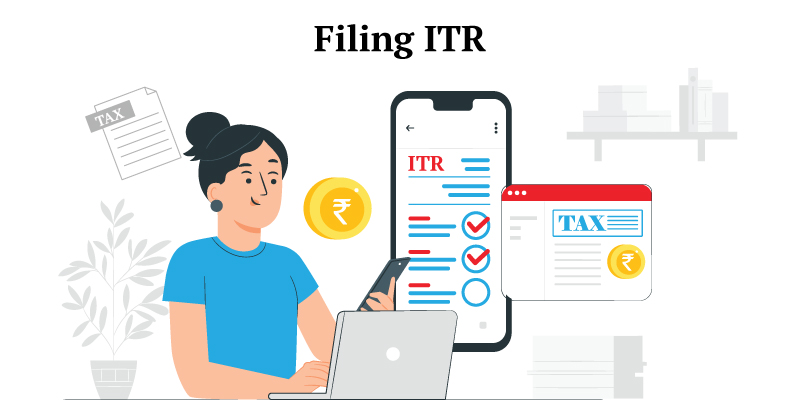ITR filing requirements for Physiotherapist, who also hold a full-time job are required to follow specific ITR filing requirements.
Here’s a detailed explanation:
1. Income Sources and Taxability:
Physiotherapists with a full-time job need to report and file their income tax returns considering both their salary income from the full-time job and any income generated through their physiotherapy practice. The income earned as a physiotherapist, whether it’s from freelance work or a part-time practice, falls under the category of “”Profits and Gains of Business or Profession.””
2. Form Selection:
The appropriate ITR form for physiotherapists in this scenario would typically be ITR-3. ITR-3 is design for individuals and Hindu Undivided Families (HUFs) who have only income from a business or profession. It allows them to report both their salary income and income from the profession in a comprehensive manner.
3. Documentation and Deductions:
Physiotherapists should maintain proper documentation of their earnings from their full-time job and their physiotherapy practice. They can claim deductions relate to their profession, such as expenses for maintaining equipment, rent for the clinic, professional development, and any allowable business-related expenses.
4. Tax Deduction at Source (TDS):
If the physiotherapist’s practice generates income that is subject to TDS, they should ensure that the TDS certificates are available and the correct TDS amount is reflect in their Form 26AS. This information is essential for accurate tax reporting.
5. Advance Tax:
Physiotherapists should also consider their total income from both sources to determine whether they need to pay advance tax. If the total tax liability exceeds ₹10,000 in a financial year, they are require to pay advance tax to avoid any interest or penalty.
6. HRA and Professional Income:
If the physiotherapist’s full-time job provides them with House Rent Allowance (HRA), they should include it in their salary income. Additionally, the physiotherapy income earned is to be included under “”Profits and Gains of Business or Profession”” in the ITR form.
7. Disclosure of Financial Interests:
If the physiotherapist has investments, assets, or financial interests that need to be disclose under various sections of the ITR form, such as foreign assets or interests in entities, they should make sure to provide accurate information.
8. Exemption Claims:
Physiotherapists should be cautious while claiming exemptions or deductions, ensuring that they are eligible and support by proper documentation. For instance, deductions under Section 80C for investments like PPF or ELSS can still be claimed based on their full-time job’s salary income.
In summary, physiotherapists who hold a full-time job and also practice on the side must file their income tax returns accurately, considering both sources of income. Proper documentation, accurate reporting, and adherence to the applicable ITR form are crucial to ensure compliance with tax regulations.

